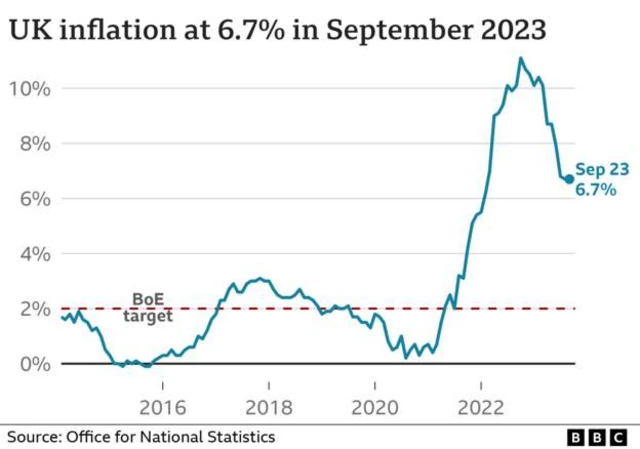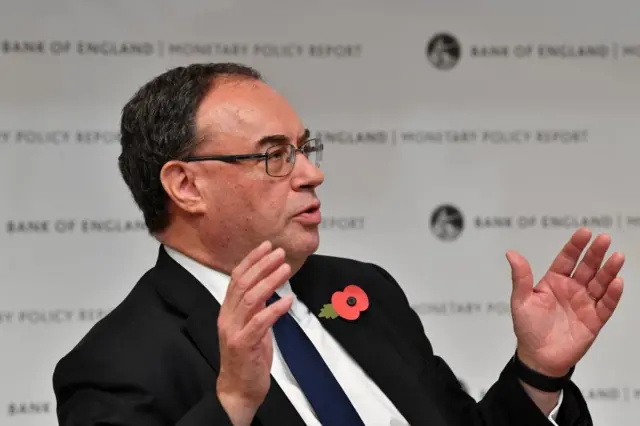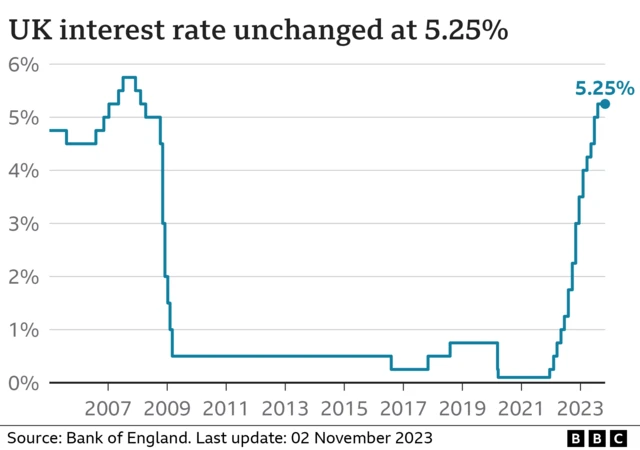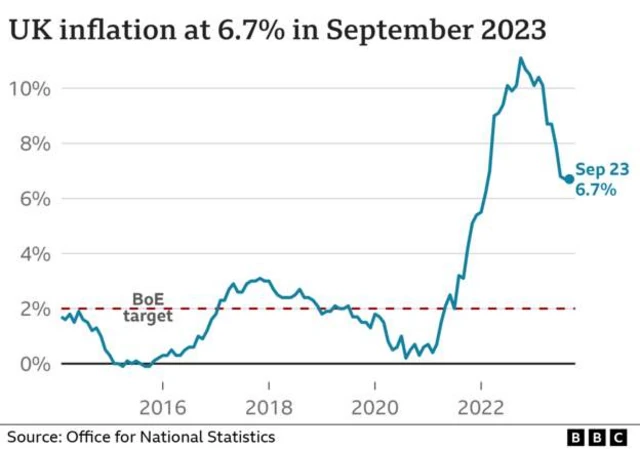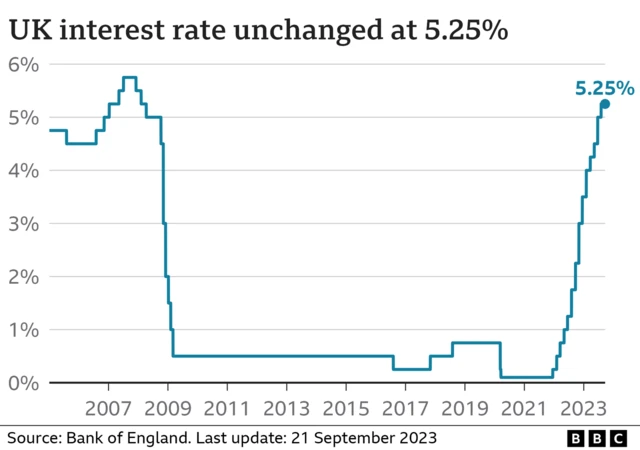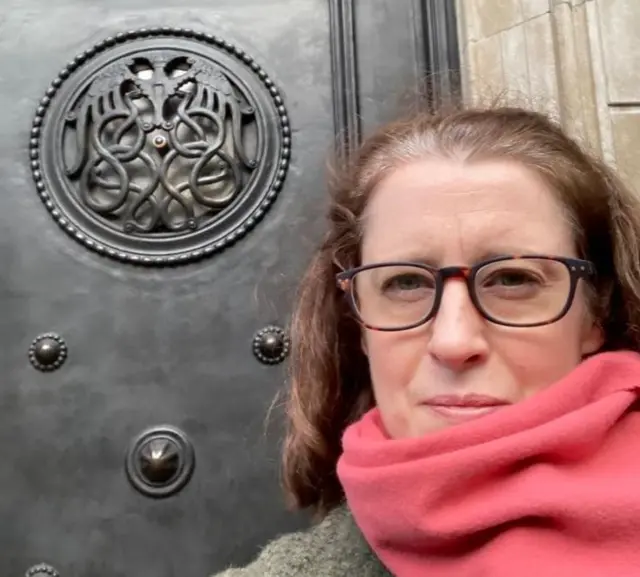Bank forecasting flat economic growth throughout next yearpublished at 12:25 GMT 2 November 2023
 Michael Race
Michael Race
Business reporter
In its most recent economic projections, the Bank of England has forecast that the UK economy will flatline next year with zero growth over 2024.
The outlook for this year remains the same as previous predictions, with GDP - the main measure of economic growth - to rise by 0.5%.
“UK economic growth is slowing,” the Bank said in its inflation report.
But it is important to note that this is a forecast from the Bank and forecasts can, and tend to, change over time.
The release of today's report comes just one day less than a year since the Bank forecast that the UK was on course for its longest recession since the 1930s.
As a result of this and other misses on the inflation predictions, the Bank in July appointed former US Federal Reserve chair Ben Bernanke to lead a review of its forecasts.
